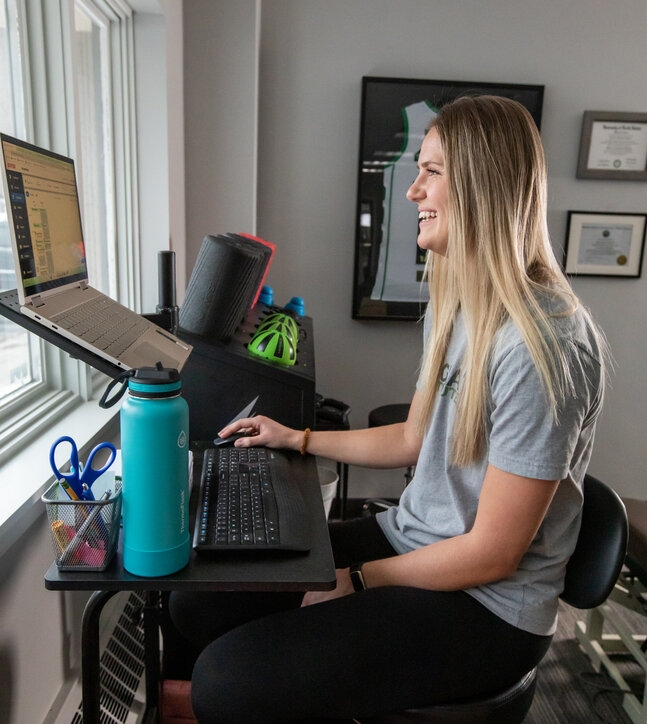Progressive Rehab
Most people aren’t familiar with progressive rehabilitation. This type of rehab is combines a variety of treatments with manual adjustments. The aim of progressive rehab is to decrease pain and improve quality of life through increased flexibility. For rehabilitation to be effective it will take patience and consistency. Seeing your physical therapist on a regular schedule will help strengthen the body.
Looking for structured rehab programs you can do at home? Check out our comprehensive rehab programs designed for specific injuries and recovery goals.
Why progressive rehab?
Most patients visit a physical therapist for treatment that provides pain relief and better mobility. However, progressive treatment as a rehabilitation strategy can provide more long-term results in the case of injured tissue or imbalances.
The goal of treatment
Physical therapist at Integrate Institute first seek out the source of the pain to determine the exact cause and develop a treatment strategy. Manual adjustments of the spine and other joints are the cornerstone to treatment.
After alleviating the initial pain, the focus becomes optimizing a patient's overall health through other rehabilitation efforts. This can include:
- Nutritional advice
- stress-reduction suggestions
- postural corrections
- exercise regimens
- Stretching
- Physical therapy
Techniques Used
Massage balls and foam rollers
These are tools used in most progressive rehab procedures. Patients learn how to incorporate massage balls and foam rollers for self-massage on targeted areas of the body.
There is a thin layer of tissue called the fascia which rest between the muscles and skin. This area can become tight due to injury or overuse. Tools like massage balls and foam rollers work to loosen up the fascia to increase blood flow and relieve pain.
Manual manipulation
Many people want to avoid surgery if possible. A physical therapist can provide more natural pain relief options such as manual manipulations. This progressive rehabilitation technique is non-invasive, unlike surgical options. Combines with other natural treatments through progressive rehab it provides relief for chronic joint or back pain. The number of sessions needed for manipulation techniques will depend on the severity of the patient’s condition.
Stretches Most people don’t know the benefits of proper stretching techniques. This is why physical therapists performing rehab treatments will teach their patients about how stretching can help heal.
Progressive rehabilitation often concentrates on stretching specific muscle groups to relax tight muscles that may be causing joint pain. One to two minutes of stretching techniques allows the muscles to lengthen and relax. The process is often combined with therapeutic tools and strengthening exercises.
Joint mobility exercises Joints that have been manipulated can often slip back out of place if they don’t have enough mobility. Performing joint mobility exercises can improve range of motion and increase flexibility for a patient undergoing progressive rehab. The physical therapist starts by instructing the patient on which poses will be most effective. Often they include therapeutic tools for increased joint mobility.
Strengthening exercises Strong muscles are the base for good structural support. Building up the muscles can relief pressures and stress from weight-bearing joints. It’s also a little known fact that strength training can improve bone density. Strengthening exercises are often part of a helpful rehabilitation program.
Progressive Rehab in Burnsville Mn
Before starting progressive rehab, patients can speak to a physical therapist at Integrate Institute to ask any questions they may have. We offer one-on-one therapy sessions to address limitations in mobility, strength, and educate on proper movement patterns. Over time, small tasks done with poor movement can lead to acute and chronic pain, which can result in reduced productivity, pain, and decreased ability to complete daily living tasks. Whether you’re a high-level athlete looking to fine-tune your movements, or you’d like to reduce pain in basic everyday movements, we can help!
Frequently Asked Questions
Be one step ahead, call us:
For more information, book an appointment with our specialists today.
(952) 300 - 1461








